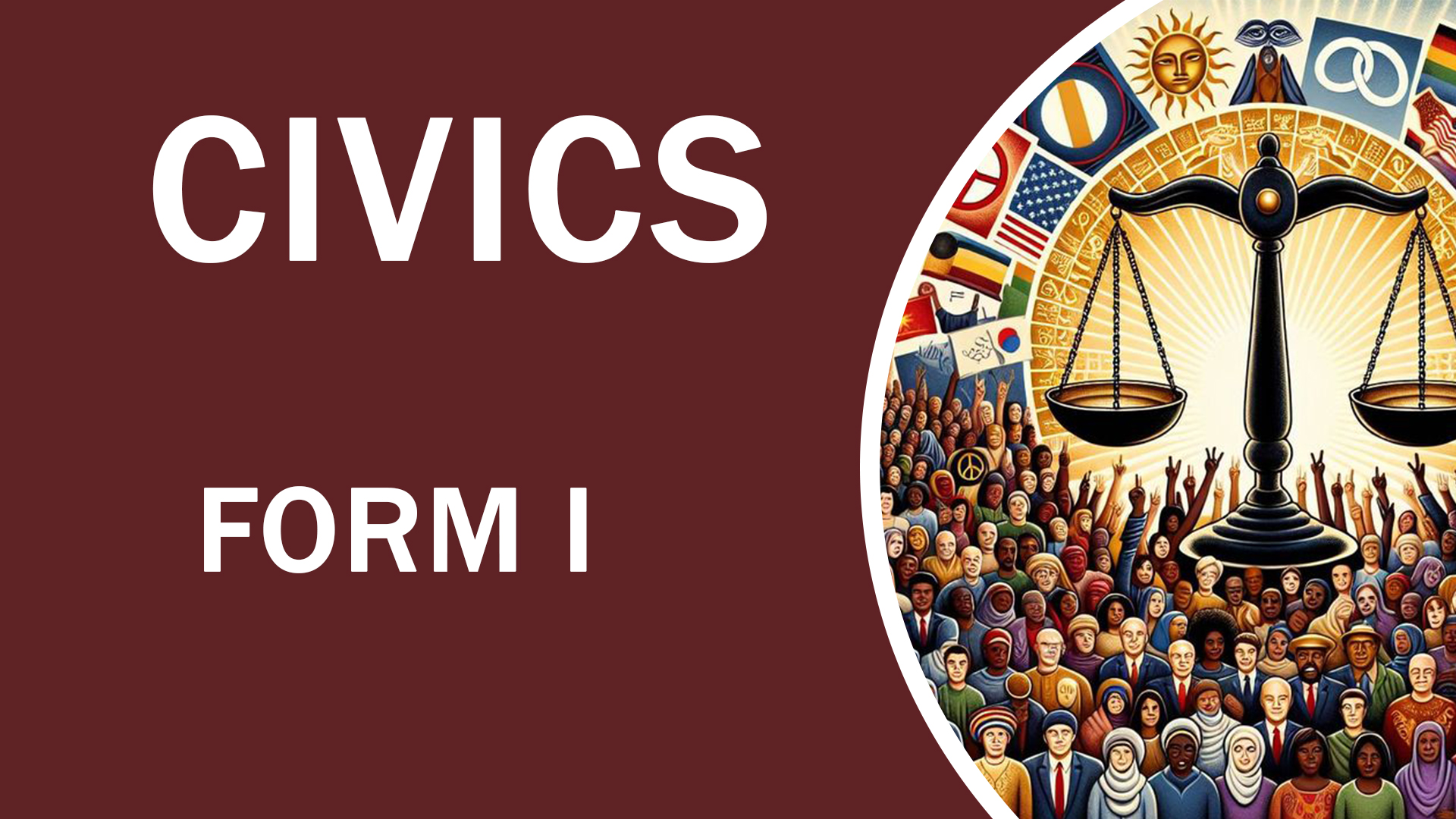Civics Form I Learning Outcomes for Edukea Website Videos
By the end of the Civics Form I course, students should be able to:
1. Understanding Civics
- Define Civics and explain its importance in daily life.
- Identify key concepts related to citizenship, democracy, and governance.
2. National Identity & Patriotism
- Explain the meaning of a nation and its key elements (territory, people, government, sovereignty).
- Recognize and respect national symbols such as the flag, coat of arms, and national anthem.
- Demonstrate patriotism and responsible citizenship in their community.
3. Leadership & Governance
- Describe different types of leadership and their roles in society.
- Identify qualities of a good leader and explain the importance of ethical leadership.
- Understand the functions of government and the role of key institutions in Tanzania.
4. Citizenship & Human Rights
- Explain the rights and responsibilities of a citizen.
- Understand fundamental human rights as stated in the Tanzanian Constitution and international agreements.
- Recognize the importance of gender equality, social justice, and human dignity.
5. Law, Order & Democracy
- Explain the importance of laws and legal systems in maintaining order.
- Understand the democratic process, elections, and the role of voting in governance.
- Describe the structure of the Tanzanian government, including the executive, legislature, and judiciary.
6. Environmental & Social Responsibility
- Explain the significance of environmental conservation and sustainable development.
- Identify ways individuals can contribute to community development and social services.
- Promote responsible use of resources and environmental protection.
7. Economic & Social Development
- Define social and economic development and their impact on communities.
- Understand the role of education, health, and entrepreneurship in national development.
- Encourage ethical and responsible participation in economic activities.
These learning outcomes will help students become responsible, informed, and active citizens in their communities and country.
Would you like help structuring these into a video lesson plan? 🎥📚
Here are the Civics Form I requirements for your Edukea Website videos, ensuring they align with educational standards and student needs:
1. Syllabus Coverage
- Follow the NECTA-approved Form I Civics syllabus.
- Cover all key topics, including:
- Introduction to Civics
- Leadership and Citizenship
- Government Systems
- Human Rights and Responsibilities
- Environmental Conservation
- Social and Economic Development
- Our Nation and National Identity
2. Video Format & Quality
- Clear and engaging visuals (animations, diagrams, and real-life examples).
- High-resolution video quality (at least 1080p).
- Well-structured lessons (introduction, explanation, summary).
- Voice clarity (neutral accent, well-paced narration).
- Subtitles (for accessibility).
3. Language & Presentation
- Use simple and clear English (or Kiswahili, depending on audience preference).
- Avoid complex jargon and explain terms clearly.
- Include real-world examples to relate Civics topics to daily life.
4. Interactive Elements
- Quizzes & Q&A sections to enhance understanding.
- Case studies or role-play scenarios.
- Discussion prompts for student engagement.
5. Compliance & Accessibility
- Follow Tanzania’s educational guidelines.
- Ensure mobile-friendly viewing for students using smartphones.
- Downloadable notes or PDFs for offline access.
Would you like a structured script or video outline for your content? 🚀
Civics Form One is a foundational course designed to introduce students to the principles of responsible citizenship, governance, and societal values. Aligned with the NECTA syllabus, this course equips students with the knowledge and values necessary to become active, informed, and responsible members of their community. citeturn0search0
Key Topics Covered:
-
Introduction to Civics: Understanding the definition, importance, and relevance of civics in daily life. citeturn0search0
-
Our Nation: Exploring the structure and elements of a nation, including sovereignty, national symbols, and unity. citeturn0search0
-
Leadership and Citizenship: Identifying characteristics of good leaders, duties and rights of citizens, and qualities of responsible citizens. citeturn0search0
-
Government Systems: Examining types of government, their structures, and their roles in society. citeturn0search0
-
Human Rights and Responsibilities: Introducing basic human rights, responsibilities, and the importance of respecting others’ rights. citeturn0search0
-
Environmental Conservation: Understanding environmental issues and the importance of conservation efforts. citeturn0search1
-
Community and Social Services: Learning about the significance of community services and social services like healthcare and education. citeturn0search1
By engaging with these topics, students develop a comprehensive understanding of their roles within their communities and the broader society, laying the groundwork for advanced civics studies in higher grades.
